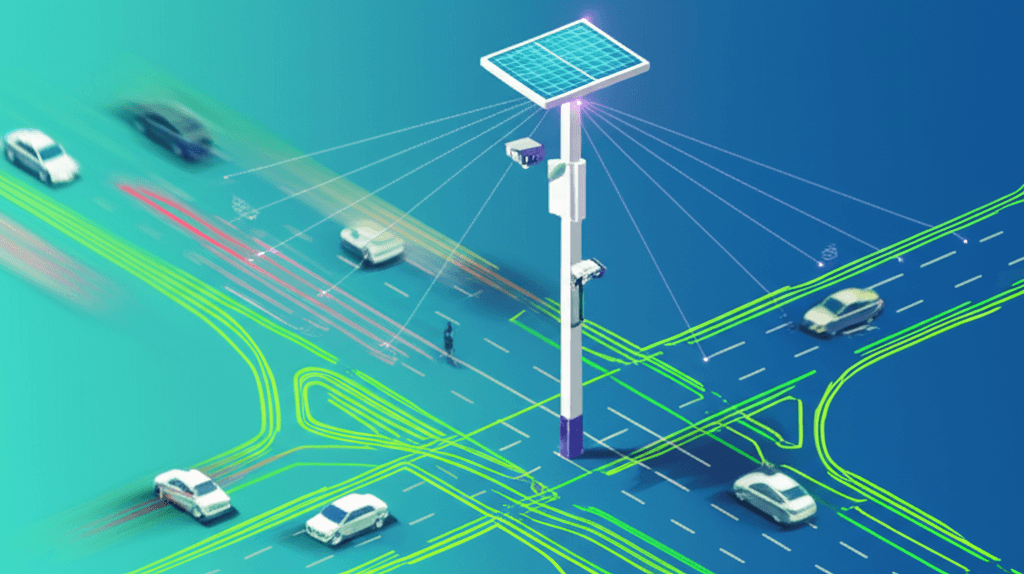AI Secures $22M to Slash America's Alarming Traffic Death Toll
A $22M boost fuels AI cameras targeting dangerous driving, aiming to drastically cut America's persistent and tragic traffic deaths.
June 19, 2025

A new infusion of capital into an artificial intelligence startup aims to tackle one of the most persistent and tragic of public safety issues: traffic fatalities. Obvio, a San Carlos-based company, has secured $22 million in a Series A funding round to expand its AI-powered traffic camera solution across the United States.[1] The investment, led by Bain Capital Ventures with participation from Khosla Ventures and Pathlight Ventures, signals a growing confidence in technology's role in modifying driver behavior and making roadways safer for pedestrians and drivers alike.[1][2][3] This funding arrives as traffic deaths continue to be a national crisis, with over 100 people killed in traffic accidents daily in America, a rate higher than most other high-income nations.[1]
Obvio’s approach centers on deploying solar-powered pylons equipped with AI-driven cameras at intersections and other high-risk areas.[1][3] These systems are designed to detect a wide range of dangerous driving behaviors, including running stop signs, speeding, illegal turns, crosswalk infractions, and distracted driving.[3][4] The technology processes video footage locally on the device, identifying violations in real-time.[5][6] This edge computing approach is a key component of the company's focus on privacy; non-violation footage is automatically blurred or deleted, and only data related to infractions is shared with municipalities and law enforcement.[1][2] The founders, Ali Rehan and Dhruv Maheshwari, who previously worked on AI camera technology for commercial fleets at Motive, are now applying their experience to the broader public safety sphere.[1][3] Their stated mission is to create accountability for drivers and foster a new culture of road safety.[1]
The scale of the problem Obvio seeks to address is significant. In 2022, driving too fast for conditions or in excess of the posted speed limit was a factor in 18.5% of fatal crashes.[7] That same year, distracted driving was a factor in over 3,000 deaths.[8] Traditional methods of traffic safety, such as engineering projects like roundabouts, can be costly and take years to implement, while educational campaigns often fail to produce meaningful change.[1] Furthermore, police departments facing staffing shortages may lack the resources for consistent traffic enforcement.[1] Obvio's solution aims to bridge this gap by offering a more efficient and targeted approach. In a pilot program in Prince George's County, Maryland, the deployment of Obvio's stop sign cameras led to a 50% reduction in violations within eight weeks.[1][2] Another pilot in Cottage City, Maryland, saw a 76% decrease in stop sign runners.[9]
The implications of AI in traffic management extend beyond simple ticketing. The technology offers the potential for a more holistic understanding of roadway dynamics.[1] AI can analyze vast amounts of data to identify high-risk areas, predict accident-prone patterns, and provide actionable insights for urban planning and infrastructure improvements.[10] This data-driven approach can help municipalities make more informed decisions about where to deploy resources, whether for enforcement or engineering changes.[10][11] Obvio’s business model reflects this partnership with local governments; the company provides the hardware to cities for free and generates revenue through a share of the citations issued, a model that varies by jurisdiction.[3][12] This makes the technology accessible to municipalities that might not have the upfront capital for expensive new systems.[12]
Despite the promising results and new funding, the application of AI in traffic enforcement is not without its challenges and ethical considerations. A core issue is ensuring that these automated systems are equitable and do not disproportionately target certain communities, a concern often raised with automated traffic enforcement.[3] Obvio's founders have stated they are focused on both safety and privacy, and a partner at Bain Capital Ventures noted the company's thoughtful approach to communities as a key reason for their investment.[1] Another challenge lies in the technology's ability to understand context. A founding engineer at Obvio acknowledged that while traffic rules are strictly defined, they can become "fuzzy without relevant social context," questioning, for instance, if a cyclist running a red light to escape an aggressive vehicle should be fined.[3] As the technology is deployed more widely, the ability of the AI to distinguish between reckless behavior and necessary evasive action will be a critical area for development. The company's success will ultimately depend not just on the sophistication of its algorithms, but on its ability to integrate its technology thoughtfully and ethically into the complex social fabric of the communities it serves.[3][13]
Sources
[4]
[7]
[8]
[10]
[11]
[12]
[13]